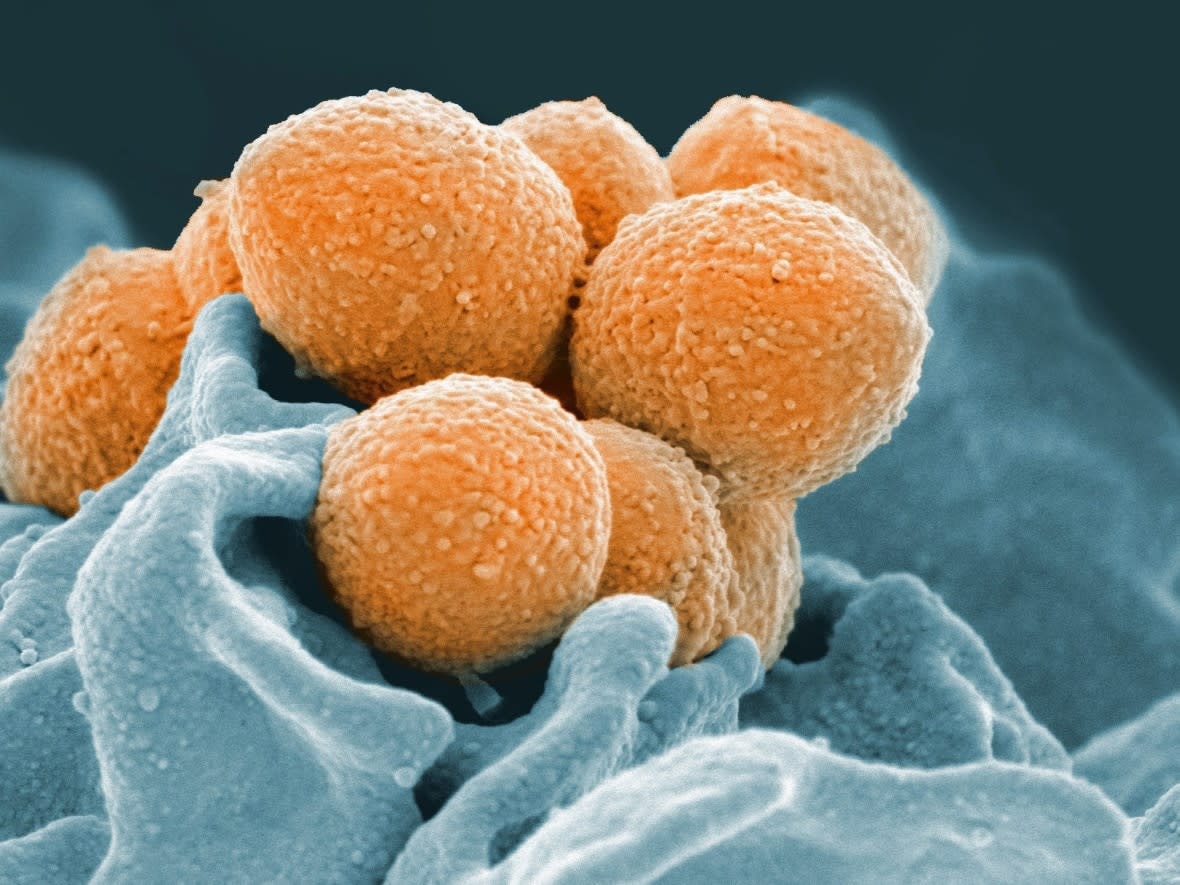'Flesh-eating bacteria' infections on the rise in Quebec

The number of invasive group A streptococcal infections (GAS) has increased by 55 per cent in Quebec compared to its pre-pandemic average, according to data from the last semester collected by the Ministry of Health and Social Services (MSSS).
According to the Government of Canada, group A streptococci are bacteria that commonly cause mild illnesses such as throat infections or sinusitis.
Complications related to "flesh-eating bacteria" infections can be severe. In the worst cases, the skin and soft tissues are affected, which can lead to amputations or even the death of the patient. Streptococcus A can, in very rare cases, cause death within 12 to 24 hours after infection.
But in most carriers of the bacteria, the effects remain mild, says microbiologist Cécile Tremblay.
"It's a very common bacteria, actually. Many people in the population carry it and often it does us no harm," she said.
Almost 347 cases of GAS were reported between Aug. 28, 2022 and Feb. 11, 2023 — compared to an average of 223 cases for the same period before the pandemic, according to the MSSS in the most recent FlashWatch report produced by the Provincial Health Surveillance Department.
Since the COVID-19 pandemic, the number of cases has increased across the province, and the report notes that the increase in the number of infections "is not explained by a new strain or by a possible antibiotic resistance."
Cases of GAS follow the trend of viral respiratory tract infections, such as influenza.
As there is no vaccine to protect against it, good hygiene practices remain the only way to limit the transmission of these infections, says the report.
The upward trend in the number of GAS cases is not specific to Quebec. Since the fall of 2022, with the appearance of three particularly contagious respiratory viruses, the increase has been observed in other Canadian provinces and in other countries.


